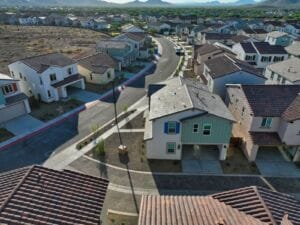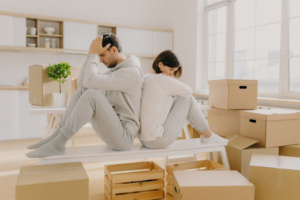“There is no place like home.” Perhaps this famous saying isn’t so heartwarming these days. After all, many people have been locked on their own in the apartment or houses for months. The COVID-19 pandemic is likely to do more changes in the way people feel about buying property. It has the potential to impact the property market negatively worldwide. Even platforms such as Movoto.com that list properties for sale have seen this impact.
It’s fairly clear that with the massive business failures, unemployment, wage cuts, and job uncertainty, most people are more likely to be cautious about making significant investment decisions. Buying property is one of these decisions. Remember, property owners tend to make rational decisions, and this is likely to drive change in this industry.
In most cases, the uncertainty created by natural disasters such as pandemics leads typically to falling property prices. During the last recession and a credit crunch witnessed in the United States and the United Kingdom and many other countries, the impact of falling property prices was felt.
In the United Kingdom, the Nationwide property price index for the month of May 2020 revealed that the prices fell by 1.7% compared to the previous month. This is the largest decline for the past 11 years.
According to Robert Gardner, a Nationwide chief economist, there are signs that this distortion in property prices is beginning to stabilize. He points out that this could be because of the impact of the pandemic rather than a typical economic downturn. The United Kingdom government, just like all other governments around the world, consciously chose to put the entire economy on hold. Other measures were put in place to support businesses and households.
Now that these lockdown restrictions are being lifted gradually, it is expected at the housing market, and the economy will rebound.
The United States is also experiencing an increase in housing prices. Areas around the country have enacted a moratorium on evictions which is typically 60 to 90 days. This means that the immediate challenges of being pushed on to banks and landlords. It appears that there will be no problems further down the line, particularly as the United States unemployment rate remains high since the COVID-19 lockdowns began.
The immediate impact
Over the past several decades, real estate investments have been generating steady cash flow and significantly higher returns compared to traditional sources of income, such as corporate debt. Since the outbreak of coronavirus a few months ago, this reality has changed. The pandemic continues to deliver a devastating blow on the real estate players across the world.
Most developers cannot access permits and have to deal with construction delays and a potential shrinking of the rates of return. On the other hand, asset owners face drastically producing operating revenue, any of them I’m nervous about the number of tenants who will be struggling to make their lease payments.
Generally, not all real estate assets are expected to perform the same way during the ongoing global health crisis. It appears that the markets have promoted majorly on the inherent degree of proximity among our property class’s users. Properties occupied by a great number of people seem to be badly hit. These include regional malls, student housing, lodging, and other similar facilities.
On the other hand, industrial facilities, storage facilities, and data centers have faced fewer declines.
Long-term impact
property owners and operators across nearly every asset class are thinking about several long-term impacts of the COVID-19 pandemic. Most of these capitalists are considering the necessary changes that these shifts are likely to cause.
For instance, within the commercial office industry, the multi-year trend towards the open plan and densification layouts are being reversed. Also, public health officials are increasingly amending building codes to lower the risk of future outbreaks. This has potentially affected their standards for square footage per person HVAC and the amount of enclosed space.
The coronavirus experience may also permanently alter habits that may impact the overall demand for some real estate assets like short-term leases and hospitality properties. Most consumers are turning to online shopping because most shopping centers are closed, and shopping malls are not operational. This might affect the demand for shopping malls and other commercial properties significantly.
The breadth and depth of the impact of the coronavirus pandemic on the real estate industry are uncertain just like the extent of human catastrophe associated with a pandemic is yet to be fully evaluated. However, some behavioral changes that might result in important space are becoming obsolete after the coronavirus pandemic seems imminent.
If you intend to invest in real estate during these hard-economic times, you may want to pay attention to the overall impact of this pandemic. Remember, you can still make a wise investment if only you can successfully identify an opportunity.




